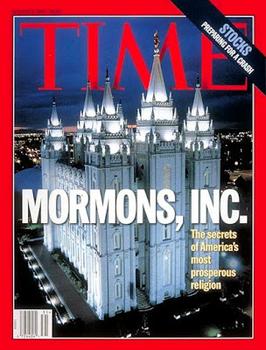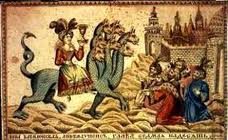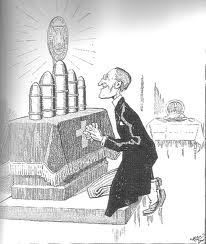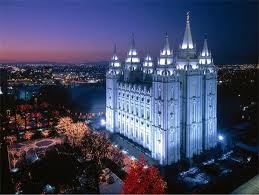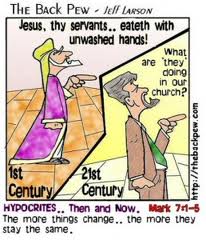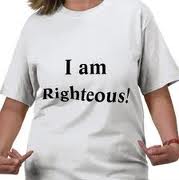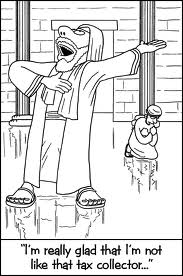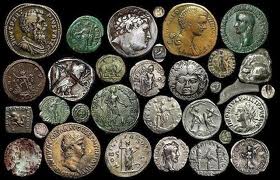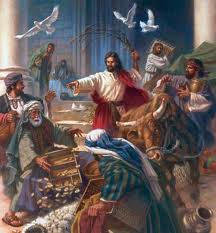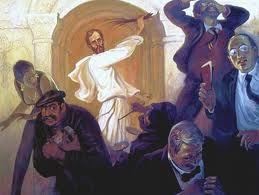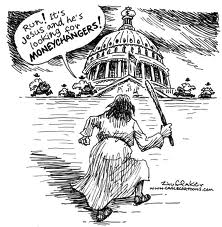Blessed are the Poor
 Saturday, September 15, 2012 at 5:00AM
Saturday, September 15, 2012 at 5:00AM 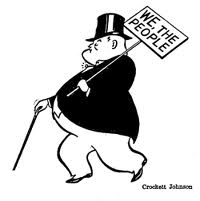 Sometimes the Synoptic Gospels (Matthew, Mark, and Luke), on a surface reading, seem to be in conflict. One example is the two different versions of the Sermon on the Mount, one in Luke 6 and another in Matthew 5. In particular Luke says, “Blessed are the poor,” while Matthew says, “Blessed are the poor in spirit.” As this relates to the theme of wealth, I thought this was a good time to talk about it.
Sometimes the Synoptic Gospels (Matthew, Mark, and Luke), on a surface reading, seem to be in conflict. One example is the two different versions of the Sermon on the Mount, one in Luke 6 and another in Matthew 5. In particular Luke says, “Blessed are the poor,” while Matthew says, “Blessed are the poor in spirit.” As this relates to the theme of wealth, I thought this was a good time to talk about it.
Normally I quote The Message as my usual translational choice. Let’s begin instead with the NIV from Luke 6:20-22
“Blessed are you who are poor,
for yours is the kingdom of God.
21 Blessed are you who hunger now,
for you will be satisfied.
Blessed are you who weep now,
for you will laugh.
22 Blessed are you when people hate you,
when they exclude you and insult you
and reject your name as evil,
because of the Son of Man.
 The version in Matthew 5 is different.
The version in Matthew 5 is different.
3 ”Blessed are the poor in spirit,
for theirs is the kingdom of heaven.
4 Blessed are those who mourn,
for they will be comforted.
5 Blessed are the meek,
for they will inherit the earth.
6 Blessed are those who hunger and thirst for righteousness,
for they will be filled.
7 Blessed are the merciful,
for they will be shown mercy.
8 Blessed are the pure in heart,
for they will see God.
9 Blessed are the peacemakers,
for they will be called children of God.
10 Blessed are those who are persecuted because of righteousness,
for theirs is the kingdom of heaven.
11 ”Blessed are you when people insult you, persecute you and falsely say all kinds of evil against you because of me. 12 Rejoice and be glad, because great is your reward in heaven, for in the same way they persecuted the prophets who were before you.
While I suppose these could be two different messages, they are so similar that I think they are the same message. It is possible they were given on different occasions. Was Matthew right in saying Jesus said “poor in spirit”? In one sense no. I think Jesus said what Luke recorded. Jesus said “blessed are the poor.” What Matthew has done is added the words “in spirit” to give us a better idea as to what Jesus meant. This fits in well with the Psalmist’s use of the word that means poor, as the hebrew word ’anaw עָנָו has a wide range of meanings including poor, humble, afflicted, and so on.
Matthew is giving us a different nuance to what Jesus said. But if you look carefully that nuance is also in Luke’s version. Here is how The Message translates Luke 6:
You’re blessed when you’ve lost it all.
God’s kingdom is there for the finding.
You’re blessed when you’re ravenously hungry.
Then you’re ready for the Messianic meal.
You’re blessed when the tears flow freely.
Joy comes with the morning.
The reason I tend to use The Message is that the translator captures these nuances very well. Not always of course. But when this translation “nails it,” it really nails it.
Here is an additional selection from Luke 6, again from the NIV.
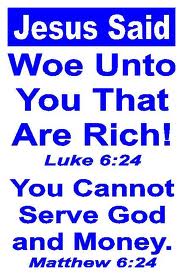 24 ”But woe to you who are rich,
24 ”But woe to you who are rich,
for you have already received your comfort.
25 Woe to you who are well fed now,
for you will go hungry.
Woe to you who laugh now,
for you will mourn and weep.
26 Woe to you when everyone speaks well of you,
for that is how their ancestors treated the false prophets.
Jesus must have had a considerable emphasis in his ministry on the poor. Luke makes that explicit. But Matthew adds enough for us to realize that humility is what Jesus is looking for. As a practical matter the rich are typically not very humble.
Let’s look at this same passage from The Message:
24But it’s trouble ahead if you think you have it made.
What you have is all you’ll ever get.
25And it’s trouble ahead if you’re satisfied with yourself.
Your self will not satisfy you for long.
And it’s trouble ahead if you think life’s all fun and games.
There’s suffering to be met, and you’re going to meet it.
26 There’s trouble ahead when you live only for the approval of others, saying what flatters them, doing what indulges them. Popularity contests are not truth contests—look how many scoundrel preachers were approved by your ancestors! Your task is to be true, not popular.
I think that Jesus is talking about an attitude, often present in the rich, of personal self-satisfaction. This is the theme of the last two posts I did on wealth. Last thursday we looked at the Pharisee and the tax collector who had differing attitudes. But the tax collector was the one who was rich, the Pharisee was the one who was proud. On Friday we looked at Zacchaeus, who although wealthy, had the correct attitude.
Jesus is talking about the rich in a general way. He understood that not all fit the pattern he was condemning but most did. In particular Jesus is talking about trouble ahead for the rich, the politically well-connected. They are headed for trouble and that trouble came in 70 AD when all the “rich” were washed away by the Roman flood.
Let me summarize the point I am trying to raise today: God has no problem with wealth, or for that matter with sexuality, or with self-defense. But there is a problem when these natural things are turned into greed, adultery, and war mongering.
